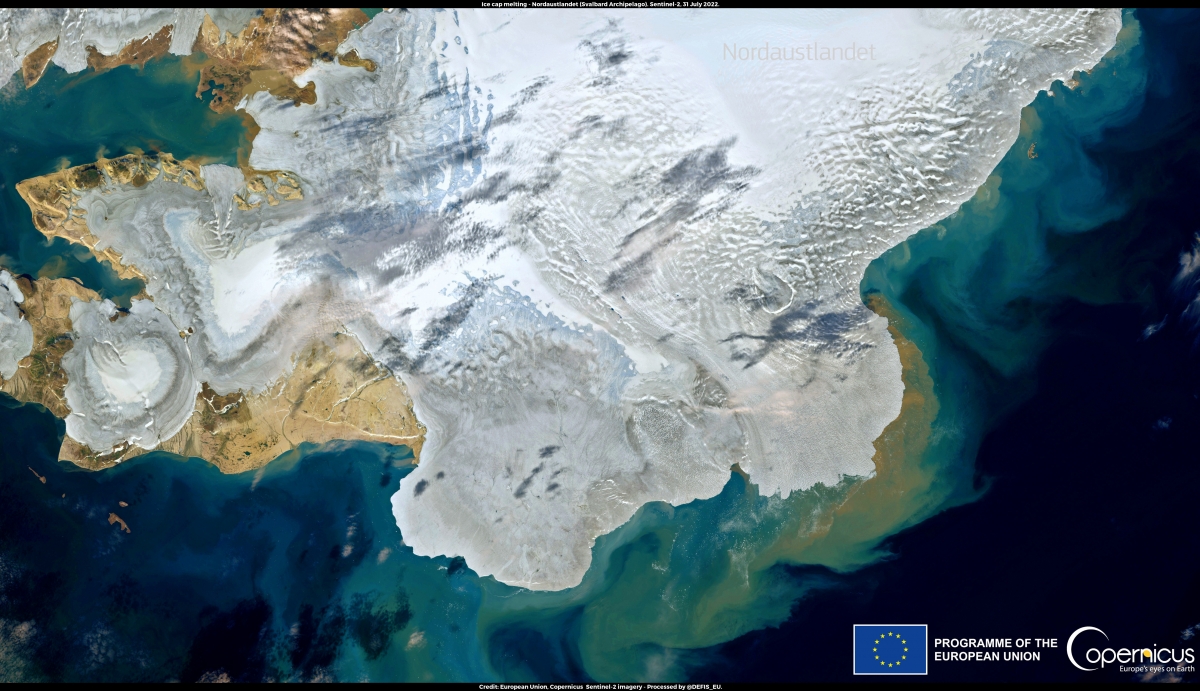Gepubliceerd op 1 augustus 2022
The extremely high temperatures recorded in this summer of 2022 are also affecting the Arctic. As of today, 1 August 2022, in Norway’s Svalbard archipelago, situated north of mainland Europe, the recorded temperatures are about 5°C higher than the reference values (i.e., in respect to the 1981-2010 average for the same day). This heatwave is causing exceptional levels of ice cap melting, thus contributing to sea level rise.
This image, acquired by one of the Copernicus Sentinel-2 satellites on 31 July 2022, shows a large sediment discharge in the Arctic Sea, off the coast of Svalbard, caused by the rapid melting of snow and ice.
Data acquired by the Copernicus Sentinel satellites are used to detect changes in the earth's surface with great detail and monitor the effects of climate change on remote environments such as the Arctic region.
